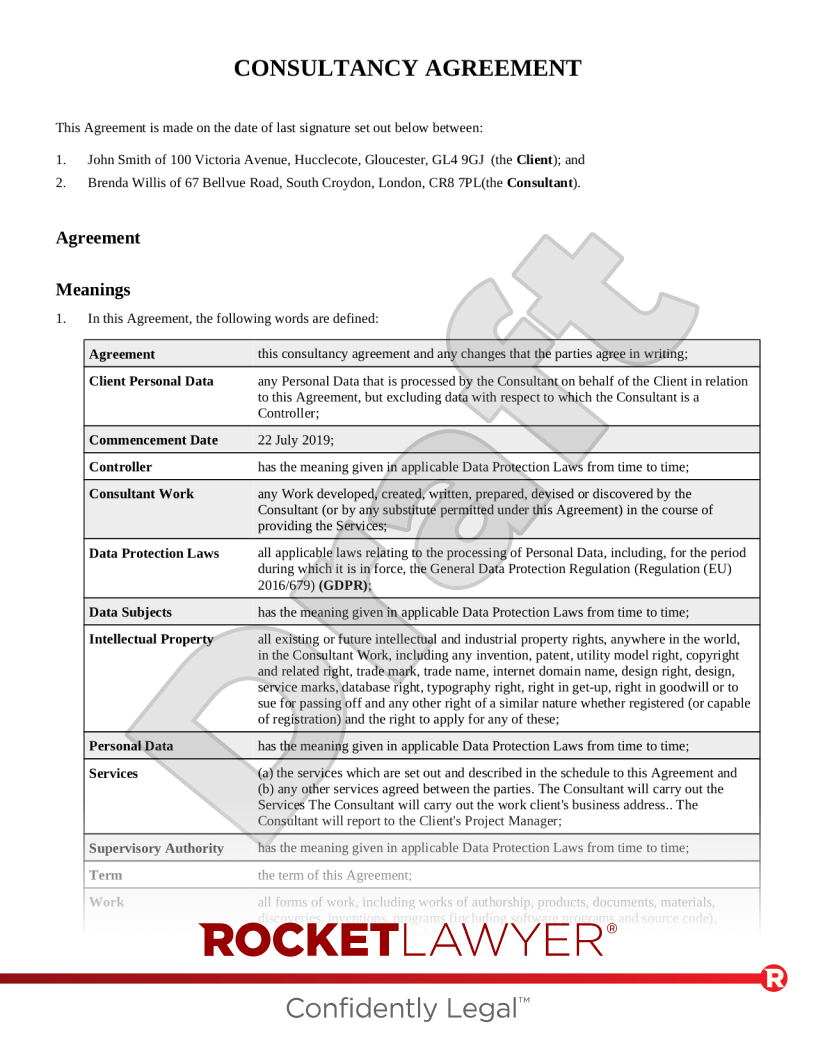What is an overseas contractor?
The term ‘overseas contractor’ refers to a person or business that provides goods or services to another party (ie the client), typically a business, in a foreign country. In other words, a business hires someone based abroad who provides goods or services to them as a self-employed individual (ie a contractor). As overseas contractors operate outside the client business’ home country, they are subject to the laws, regulations and business practices of the country in which they are located.
Overseas contractors can be involved in various industries, including construction, technology, consulting and manufacturing.
The term is often used interchangeably with terms like ‘international contractor’, ‘overseas consultant’ or ‘international freelancer’.
For more information on contractors in general, read Consultants, workers and employees and Using consultants.
Employment law and jurisdiction considerations for working with overseas contractors
Businesses using overseas contractors need to consider country-specific employment regulations and keep updated on any developments in employment law in the countries in which their contractors are based (a UK example would be the 2016 ruling that Uber drivers are classed as 'workers' rather than 'self-employed contractors').
In the UK, there are important distinctions between employees, workers and self-employed contractors, which determine the applicability of various employment laws (eg entitlements to minimum wage or holiday pay). Businesses that want to use contractors in other countries need to be aware of how the different employment statuses are classified to avoid breaking local employment laws.
Even if employment law issues do not arise, other disputes can crop up, and these can be more difficult to resolve due to differences in legislation between the contractor's country of residence and relevant UK regulations. There can also be a clash of business cultures. For example, due to differences in working days or the normalcy of delays in work submission or payment in some countries and not others. This can lead to legal disputes.
Further jurisdictional complications can also arise if litigation ensues; namely, determining which court (ie one in the UK or one in the contractor's country) should hear proceedings.
For more information on issues relating to the jurisdiction of a contract, read Jurisdiction and international contracts.
How to prevent legal disputes with overseas contractors
One of the most effective ways of minimising the risk of disputes with overseas contractors is ensuring that everything is put in writing before the business relationship starts. A bespoke consultancy agreement or subcontracting agreement can be used to set out the expectations and responsibilities of both parties. As local employment laws vary, you should always Ask a lawyer for advice before making a written agreement with an overseas contractor. This will help you ensure that the contract is valid in the contractor’s specific country. It may sometimes be necessary for a local lawyer to convert the agreement into an appropriate form.
Using overseas contractors through a managed service company is another option. Rather than contracting directly with the individual contractor, you contract with the service company, which will handle any employment law issues on their end.
How do you pay an overseas contractor?
It's important to agree on payment terms and methods in advance. International payments will often incur extra expenses, both in terms of exchange rates and administration fees, and may take longer. Many overseas contractors will accept alternatives to direct bank transfers (eg payments via PayPal). However, even these types of services levy cross-border charges (eg PayPal merchant fees), so make sure to familiarise yourself with a service’s fees before agreeing to a payment method.
Are there any tax implications for hiring an overseas contractor?
If you intend to use a self-employed overseas contractor, there are generally no additional tax implications for your business other than what there would be for using a UK-based counterpart. However, it can be tricky to establish the actual employment status of an individual. To avoid doubt, it can be helpful to contract with them via an overseas services company that handles payment and administration.
It is advisable to Ask a lawyer to assess your specific arrangements.
Does IR35 apply to overseas contractors?
IR35 is a tax law introduced to tackle tax avoidance by contractors supplying their services to clients via an 'intermediary' (eg through a private limited company, known as a personal service company or 'PSC'), when these contractors would otherwise be employees of the client. IR35 applies when a contractor provides services to a business through a UK registered intermediary.
Where a consultant does not provide their services through a PSC (eg if they provide their services to the client directly as a sole trader), the client is still responsible for determining their employment status. This is because if a consultant is deemed an employee, the client may be liable to HMRC for the misclassification.
Where IR35 applies, the fees paid by the client to the consultant are treated as employment income and are subject to income tax and National Insurance Contributions (NICs).
Where a contractor is both tax resident outside the UK and performing all their services outside the UK, there is generally no income tax or NICs liability in respect of that individual. This means a client does not typically need to determine such a contractor’s employment status. If the contractor is tax resident outside the UK but performing their services in the UK, the client will need to determine their employment status.
Similarly, if a consultant provides their services through a UK intermediary, a client may need to determine their employment status (depending on the size of the client’s business). If they provide their services through an international intermediary (ie one not registered in the UK), the client typically does not need to determine the contractor’s employment status.
For more information, read IR35 and IR35 status determination and see HMRC’s guidance on employment statuses for IR35. Due to the complexity of IR35, it is advisable to seek advice from an accountant.




